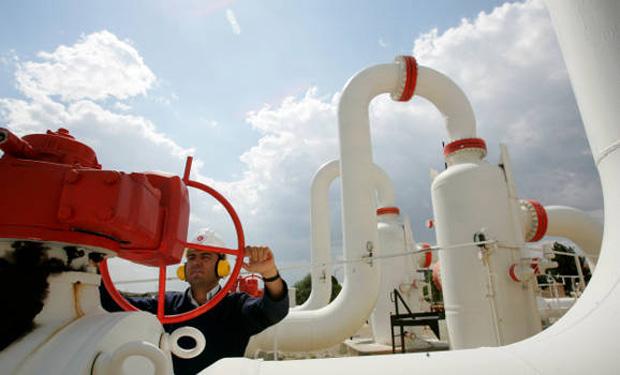
GAS FOR TURKEY

Energy security expert Rovshan Ibrahimov, who earlier headed the department of foreign policy analysis at the Center of Strategic Studies under the President of Azerbaijan Republic, has taught at the Azerbaijan Diplomatic Academy University, and currently teaches at Hankuk University of Foreign Studies in South Korea. But his perspectives on Turkey are particularly acute as he received his education in the country and is known for his research on Turkish politics and economics. In light of the tense relations between Turkey and Russia, Natural Gas Europe queried Dr. Ibrahimov's views on the prospects for Turkish gas policy and the country's relations with states in the Caspian Sea region.
Dr. Ibrahimov, in light of recent events, is the Turkish government to examining the possibility of diversification of gas in its market?
It should be noted that the Turkish government has already begun the quest for diversifying gas in its market. About 60% of the natural gas (approximately 27 billion cubic meters in 2014) Turkey imported is from Russia. Fifty percent of the electricity in Turkey is produced from natural gas. In addition, the industrial region of Turkey - Marmara, which produces almost 40% of state GDP, is almost completely dependent on Russian gas. Marmara encompasses the major Turkish cities such as Istanbul, Bursa, Kocaeli, and Balykkesir (11 cities in total) with a total population of 23 million people (out of Turkey's population of 77 million). Diversifying the energy sources of this region is not very simple. However, Turkey has already held talks with Qatar about the possibility of LNG supplies. On December 2, Turkey's BOTAŞ and Qatar Petroleum company signed a memorandum on long-term supplies of LNG. Now they are preparing a contract. Turkey also hopes to purchase LNG from the US.
However, Turkey has only two LNG terminals: one in the Marmara region, the other in Aliaga, near Izmir. The total amount of processing is small and already loaded with supplies from Nigeria and Algeria. In short, Turkey is able to degasify only 14 billion cubic meters (bcm) of LNG per year and its LNG storage capacity is only 3 bcm.
In addition, Qatar's LNG is expensive compared to Russian gas (although Russian gas is also not cheap). New LNG terminals will not be easy to build in the short term; it is a very expensive process. It also possible to increase the efficiency of processing and transmission of gas through the introduction of modern technology, however, it will not completely solve the problem.
In addition, Turkey is waiting in the medium-term for the supply of natural gas from Iraq. Turkey plans during the next two years to build a pipeline from Mardin to Silopi (a city on the border with Iraq), a length of 180 km. Within three years, it is expected that the pipeline could reach a capacity of 20 bcm. It is also considered ae option to import Azerbaijani, Turkmen and Kazakh gas.
Overall, it is worth noting that the most feasible diversification projects can be realized only in the medium-term (about 3-5 years), so during this time the main supplier for Turkey will be Russia. In addition, Turkey has signed long-term agreements for the acquisition of gas with this country.
How can the construction of the Trans-Anatolian Pipeline (TANAP) initiated by Azerbaijan help to achieve this goal?
Initially, following TANAP's completion, Turkey should acquire an additional 6 bcm of Azerbaijani gas per year. In addition, during his visit to Baku on December 3, the Prime Minister of Turkey, Ahmet Davutogdu, agreed with Azerbaijan to accelerate the construction of TANAP. Thus, Turkey hopes that Azerbaijani gas will be supplied to the market ahead of schedule, so partial diversification Turkey's sources of gas is possible.
On December 11-12, Turkish President Recep Tayyip Erdogan will visit Turkmenistan. Because of that, the Turkish press has already started to discuss the possibility of the purchase of Turkmen gas for the Turkish market. In the light of Russia's use of its fleet in the Caspian Sea, how likely is the implementation of the Trans-Caspian gas pipeline. Or is it just a myth?
It should be noted that even before the use of the Russian navy in the Caspian Sea the probability of realizing this project was very low. The Trans-Caspian gas pipeline is a geopolitical project and not only Russia is against it, but also Iran. Azerbaijan and Turkmenistan will not take the risks to implement the project because they do not want to spoil relations with their neighbors. The project is possible with political support and security guarantees from the United States, as it was in the case of the Baku-Tbilisi-Ceyhan oil pipeline. However, such support is not forthcoming. The EU attempts are present, but it is not valid to give such guarantees.
No doubt during Erdogan's visit to Turkmenistan the possibility of Turkmen gas imports will be considered. However, this question will be posed in the framework of its transportation through the territory of Iran. The necessary infrastructure is available, it is only needed to determine whether the Turkmen gas volumes are available for export to Turkey and whether Turkey and Turkmenistan can manage to negotiate with Iran, regarding volumes and prices.
-----
More:

